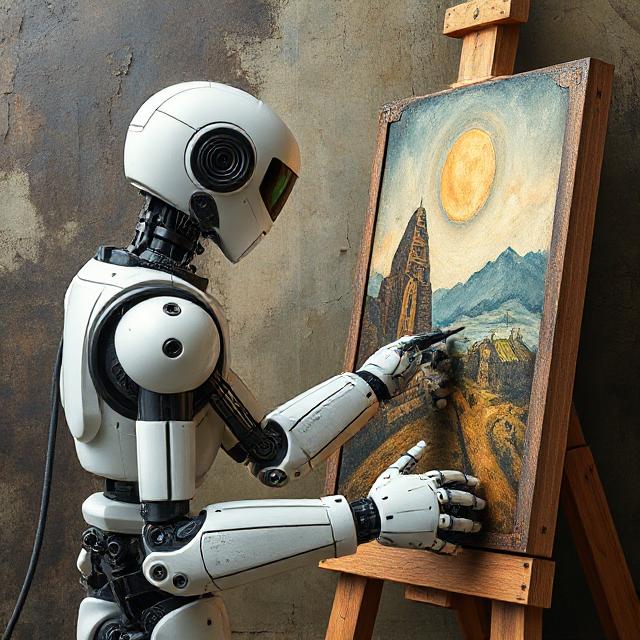The Rise of AI-Generated Content: Who Owns the Copyright?

As artificial intelligence becomes more advanced, it's raising critical legal questions—chief among them: who owns the copyright to content created by AI? This article dives into the complexities, legal frameworks, and future implications of copyright law in the age of machine-generated works.
Introduction
The integration of artificial intelligence (AI) into creative processes is revolutionizing industries—from art and music to writing and software development. With tools like ChatGPT, DALL·E, and Midjourney becoming mainstream, content is increasingly being generated by non-human creators. But this technological leap has sparked a fundamental legal question: who owns the copyright of AI-generated content?
Understanding Copyright Law
Copyright law is designed to protect original works of authorship that are fixed in a tangible medium of expression. Traditionally, this protection extends to human creators—writers, musicians, artists, and others who bring ideas to life. U.S. Copyright Office guidelines, for example, specify that only works created by humans can be copyrighted. This principle is echoed in many legal systems globally.
What Happens When AI Creates?
When an AI model generates content, it typically does so based on prompts provided by a user. The final output may be original, but the AI itself is not sentient—it doesn't possess creativity or authorship in the legal sense. This has led to three main schools of thought regarding copyright ownership:
- No Copyright: Some jurisdictions argue that AI-generated works are not eligible for copyright since they lack human authorship.
- User Ownership: Others claim that the user who prompted the AI should be granted copyright, likening their role to that of a director or architect guiding a process.
- Corporate Ownership: In cases where AI is used commercially, companies might assert ownership based on employment or licensing agreements.
Recent Legal Precedents
Several key legal developments have begun shaping the conversation:
- In 2022, the U.S. Copyright Office rejected a request to copyright a piece of art generated by an AI named "Creativity Machine," stating that "non-human authorship" does not qualify.
- In 2023, the UK Intellectual Property Office announced a consultation on how copyright should apply to AI-generated content, signaling future changes in the law.
- Australia and Japan have begun exploring copyright frameworks that might assign rights based on human input or intent.
The Role of Human Input
One way to navigate this issue is to analyze the degree of human involvement in the creative process. If a human provides detailed prompts, edits outputs, and makes creative decisions, their contributions might warrant copyright protection. The line between AI assistance and AI authorship is increasingly blurry but remains legally significant.
Terms of Service and Licensing
Most AI platforms include terms of service that govern the use and ownership of generated content. OpenAI, for instance, allows users to commercialize content generated by its tools but doesn’t guarantee exclusive ownership. This creates potential conflicts when similar prompts generate similar outputs across users.
Implications for Legal Professionals
Lawyers must now navigate a gray area where technology outpaces legislation. Advising clients—whether artists, corporations, or developers—requires understanding not only current legal statutes but also the evolving interpretations of authorship and originality. This is especially critical in disputes over content ownership or in drafting contracts for content creation using AI.
International Perspectives
Different countries are taking varied approaches. In the EU, discussions are ongoing around the Digital Services Act and AI regulation. China recognizes copyright only when a human is involved. India is still in early stages of addressing this challenge. These differences make international content distribution and licensing increasingly complex.
The Future of AI and Copyright
As AI becomes more advanced, the legal system will need to adapt. Possible solutions include:
- Creating a new category of intellectual property for AI-generated works.
- Establishing guidelines for how much human input qualifies a work for copyright.
- Using blockchain to track and verify authorship and usage rights.
Conclusion
The question of who owns AI-generated content is far from settled. As courts, lawmakers, and technology companies grapple with this issue, legal professionals must stay informed and proactive. In the meantime, the safest path for users is to document their creative input and understand the terms of service of any AI tools they use.